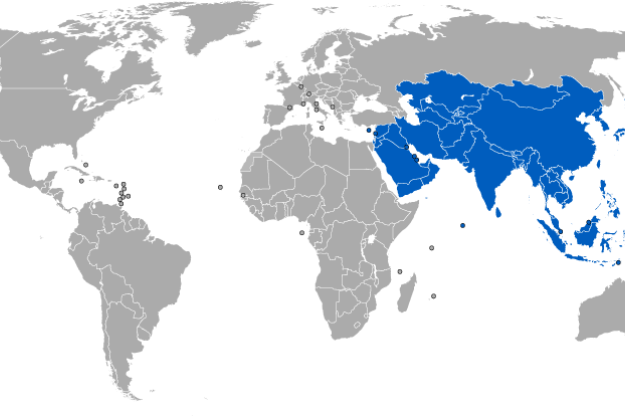
The Organisation for the Prohibition of Chemical Weapons (OPCW) co-hosted with the Government of Indonesia the Fourth Regional Meeting of National Authorities of States Parties in Asia, which was held in Jakarta, Indonesia, from 5 to 7 September 2006. The meeting was attended by 73 participants from 28 States Parties, as well as by Myanmar, a Signatory State. In his remarks at the opening ceremony, H.E. Ambassador Rogelio Pfirter, OPCW Director-General, thanked Indonesia for co-hosting this important meeting and commended it for taking steps towards effective implementation of the provisions of the Convention. He also noted that “since the adoption of the Plan of Action regarding the implementation of Article VII obligations by the Conference of the States Parties at its Eighth Session in October 2003, The Technical Secretariat, with the active support from Member States, has undertaken an unprecedented effort, in terms of breadth and depth of its programmes, to support those Member States requesting assistance in fulfilling their Article VII obligations.” He further noted that “it is our common effort to achieve the highest possible degree of compliance with the provisions of the Convention in terms of national legislation and internal controls which motivate the OPCW’s implementation assistance efforts”.
In his opening address, H.E. Dr. N. Hassan Wirajuda, Minister for Foreign Affairs noted that “the meetings of the CWC National Authorities and the work of the OPCW have assumed even greater importance in the light of the world situation today. One of the biggest threats posed against the human race today is the possibility of weapons of mass destruction getting into unscrupulous hands, such as those of terrorists and international crime syndicates. The result could be an enormous carnage that could bring an entire nation to its knees”. He further said, “we therefore have a tremendous stake in the compliance by all States Parties with the various conventions on weapons of mass destruction, including the Chemical Weapons Convention. We want to see the OPCW succeed in its vitally important work. We do not want to take any chances that weapons of mass destruction get into the wrong hands.” Regarding Indonesia’s efforts to implement the Convention, the Minister of Foreign Affairs said “Indonesia has been able to enhance our national capacity to adhere to the Convention. We have strengthened coordination among our stakeholders at the national level. This has been possible because we are in close collaboration with the Technical Secretariat of the Organisation for the Prohibition of Chemical Weapons (OPCW)”.
The meeting served as a forum in which States Parties in the region presented their need for assistance and indicated what assistance they could offer to other States Parties. It also provided an opportunity to discuss issues relating to the identification of declarable Article VI activities and the enhanced quality of the declarations submitted by States Parties, as well as the role of custom authorities in carrying out the import and export provisions of the Convention.
PR52 / 2006
